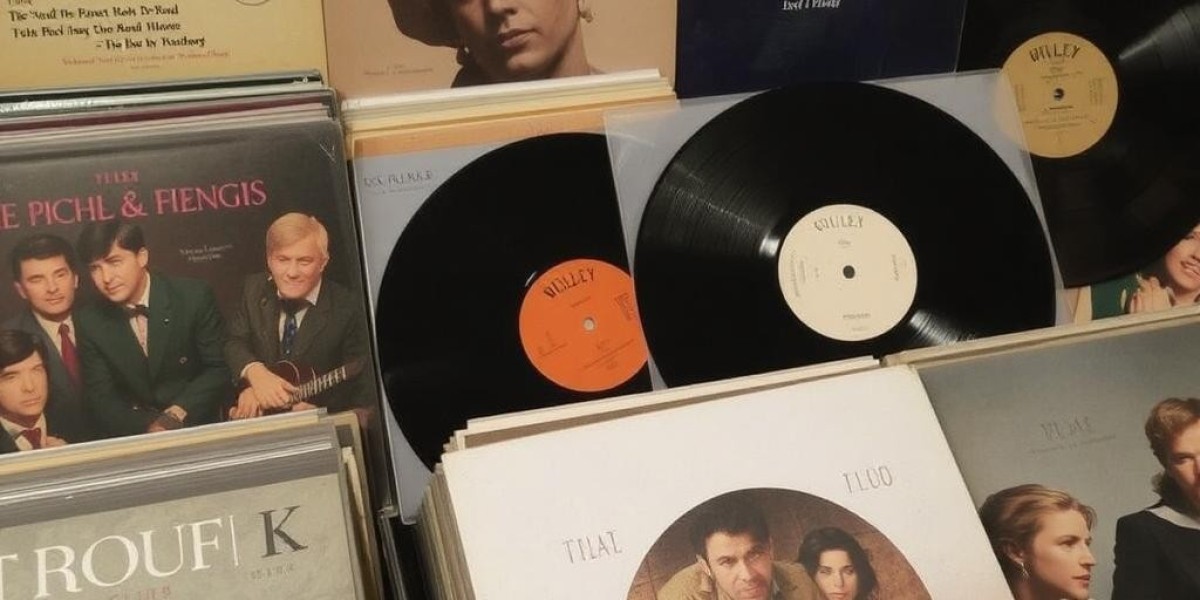Surface noise is one of the most common and frustrating issues faced by vinyl collectors, especially when dealing with rare and vintage records. Surface noise refers to the faint crackles, pops, and hisses that can be heard during playback. While some audiophiles enjoy the nostalgic warmth these imperfections bring, for others, especially those with rare and valuable records, minimizing surface noise is essential for preserving sound quality. Surface noise can stem from a variety of factors, including dust, dirt, static, worn grooves, and improper handling. Thankfully, there are several effective ways to reduce or eliminate this unwanted sound and ensure that your rare records maintain their clarity and vibrancy. Here’s a guide on how to minimize surface noise on rare vinyl records.
1. Clean Your Records Regularly
The most effective way to combat surface noise is by ensuring your records are clean. Dust, dirt, and grime are major culprits of surface noise, especially on older or frequently played albums. Even a tiny particle lodged in the grooves can cause a loud pop or crackle when the stylus passes over it.
Start with a simple cleaning routine using a carbon fiber brush. These brushes are specifically designed to remove dust without scratching the surface of the record. For deeper cleaning, invest in a record cleaning machine. These machines can thoroughly clean the grooves, removing not just visible dirt but also oils, fingerprints, and deep-seated particles that brushes can't reach. Some cleaning machines, like vacuum-based models, offer superior results by gently extracting dirt from the grooves without causing any harm to the vinyl.
If a cleaning machine isn't in your budget, there are alternative methods using cleaning solutions. Use a soft microfiber cloth and apply a record cleaning solution designed for vinyl. Avoid using harsh chemicals, as these can damage the grooves or degrade the vinyl over time. For stubborn grime, a gentle, homemade solution made from distilled water and isopropyl alcohol (in a 4:1 ratio) can be effective, but always make sure to use it sparingly.
2. Properly Store and Handle Your Records
Proper storage and handling are critical in minimizing surface noise and preserving the condition of your records. Vinyl is sensitive to temperature and humidity, and improper storage can lead to warps, scratches, or other forms of degradation that exacerbate surface noise.
Always store your vinyl records vertically, similar to how books are arranged on a shelf. Avoid leaning records against one another, as this can cause warping over time. Ensure your records are kept in a cool, dry environment, ideally between 65–70°F (18–21°C), and avoid exposing them to direct sunlight or extreme temperatures, which can cause warping or damage.
Use high-quality inner sleeves made from anti-static materials to protect the records from dust, scratches, and static buildup. Outer sleeves made from polyethylene or thick PVC will also help protect the album cover from wear and tear. Be sure to handle records by their edges or label to avoid getting fingerprints on the grooves. If you do have fingerprints, clean them off immediately to prevent oils from accumulating.
3. Invest in a Quality Turntable and Cartridge
The equipment you use to play your records has a huge impact on the amount of surface noise you hear. A poorly set-up or low-quality turntable can amplify the noise in the grooves, while a high-quality setup will help you extract the best sound from your rare records.
Invest in a turntable with a stable platter and a reliable tonearm. A turntable with a motor that doesn’t introduce unwanted vibrations will prevent excess noise during playback. Pair your turntable with a quality cartridge and stylus, which will track the grooves more accurately and reduce the likelihood of skipping or unwanted noise. A stylus with a fine elliptical or microline tip is best for minimizing surface noise, as these types of stylus designs are better at following the grooves without skipping or jumping over dirt and imperfections.
Regularly check your tonearm settings, such as the tracking force and anti-skate settings. If these are incorrectly adjusted, they can cause the stylus to exert too much pressure on the grooves, which leads to more wear and surface noise. Proper alignment of the cartridge is equally important. Even slight misalignment can cause distortion and excessive noise.
4. Use an Anti-Static Mat
Static electricity is another significant cause of surface noise on vinyl records. When a record is played, it often generates static, which attracts dust and dirt to the grooves, exacerbating the issue of surface noise. To prevent static buildup, consider using an anti-static turntable mat. These mats are made from materials that dissipate static charges, preventing dust from sticking to the surface of the vinyl.
Anti-static mats also provide a stable, vibration-free platform for the record, which can improve sound quality and reduce unwanted noise. They are easy to find and relatively affordable, making them a simple yet effective tool for any vinyl enthusiast looking to minimize surface noise.
5. Consider the Humidity Levels
Humidity can play a significant role in the level of surface noise you experience. Too little moisture in the air can lead to static buildup, while excessive humidity can cause the vinyl to warp or swell, both of which result in distorted sound and increased noise.
To maintain optimal conditions for your records, aim for a relative humidity level of around 40–50%. If you live in an area with high humidity, a dehumidifier can help maintain this balance. On the other hand, if you’re dealing with static buildup due to dry air, a humidifier can help alleviate this issue.
6. Avoid Overplaying Your Records
Playing a rare or vintage record too frequently can cause excessive wear on the grooves, which will increase surface noise over time. Even with the best care, playing the same record too often leads to deterioration of the vinyl. This is especially true for older LPs, which may already show signs of wear.
To preserve the condition of your rare vinyl, try to avoid playing it too often. If the music is available in digital or other formats, consider using those for frequent listening. Reserve the vinyl for special occasions or when you want to enjoy the unique warmth and sound that only vinyl can provide.
7. Repair Damaged Records
Even with the best precautions, rare vinyl records may still develop cracks or grooves that have been damaged by previous owners or prolonged play. While it's impossible to completely restore a record to its original condition, there are some steps you can take to minimize the effects of damage.
One option is to use a vinyl repair tool that can help smooth out minor scratches. These tools often use a combination of specialized abrasives and lubricants to help fill in and smooth over shallow scratches and imperfections in the grooves. While this won’t completely eliminate surface noise, it can reduce the pops and crackles caused by these imperfections.
Conclusion
Surface noise is an inevitable part of owning and playing vinyl records, but with the right precautions, it can be minimized. Regular cleaning, proper storage, and the use of quality equipment will go a long way in preserving the sound quality of your rare records. Investing in a high-quality turntable, stylus, and anti-static accessories will help you extract the best sound from your vinyl, while careful handling and minimal playback will ensure your rare records continue to sound great for years to come.
Bollywood Vinyl Records Classical Vinyl Records Devotional Vinyl Records Dialogue Vinyl Records Dj Remix Vinyl Records English Vinyl Records Film Hits Vinyl Records Ghazals Vinyl Records Instrumental Vinyl Records Non Filmi LP Records Punjabi Vinyl Records Rare Vinyl Records Online Vinyl Shop Online Chardham Hotels in chardham







